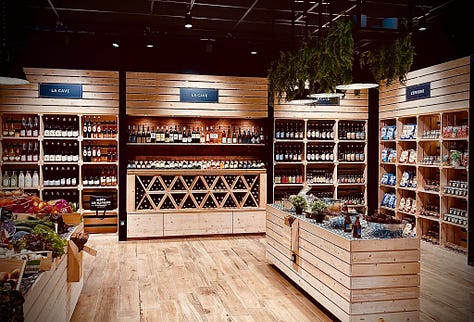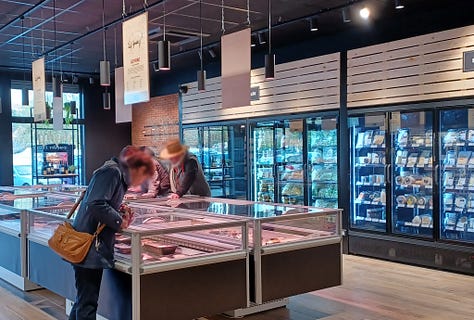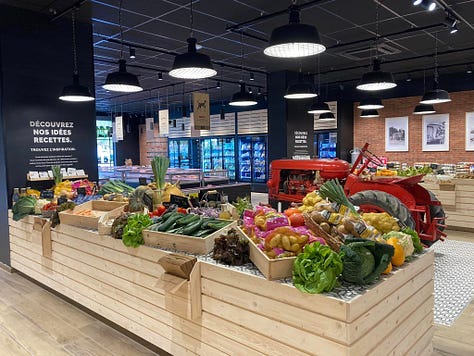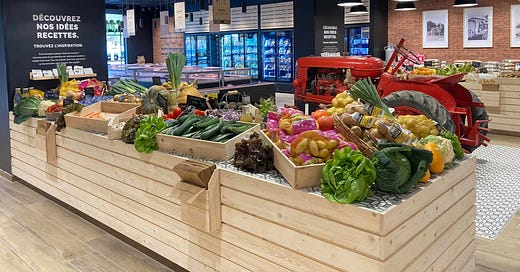It was the food! The quality, the flavor, the variety, the freshness. But it was also the slower pace, the ancient buildings, the walking everywhere. These ‘memory souvenirs’ come from Marion’s recent travels to Château-Renard, a small village of 2100 in the Loiret Valley in north-central France.
The village was an amazing adventure in seeing the abundance and tasting the quality of fresh and local foods. Can you imagine buying a fresh Guinea hen or rabbit at the butcher and preparing it for dinner the same day? Perhaps this is why travelers to Europe so often describe their experiences in terms of the food.
With a huge farmers market, a local-food-only grocery, truck vendors and booth tenders, this small French community enjoys something we Americans can barely comprehend - food with real, natural flavor from cheese mongers, butchers, bakers, and, yes, wine makers. All successfully offering their wares in competition with a large chain grocery . . . in a village of only 2100.



Many residents are seniors retired from jobs in the city who often walk to and from their destinations, enjoying clean air, green landscapes, and ancient buildings of wood and stone that have stood for centuries. No big box stores or heavy traffic in sight and online shopping is uncommon.
For a community of its size, the farmers market and local food grocery offer an amazing quality and variety of foods, all grown in the region and identified with names and photos of the farms, farmers, and artisans.
Buying fresh and cooking daily is an experience little known in America, yet one becoming highly valued by ‘food as medicine’ practitioners. Which brings us to wellness and how any small village in France creates something remarkable for itself almost without trying . . . simply because it knows and loves good food.
The question now becomes: How can we make such fresh, high-quality foods available in America, in Mississippi? And how do we make them accessible to everyone? Living Well Locally envisions this happening through intentional design, through creating awareness of how a focus on personal, place-based wellness changes the landscape. And especially how the power of fresh, real foods and face-to-face interactions support health and wellness and create cultures of health that take root and grow until they include everyone.
America’s journey into big box stores and ultra processed foods means our return to local living and real food will be different from what Marion encountered in France. Our country will likely evolve a hybrid system, something like big chain stores yielding to market forces and restructuring to include local goods, especially foods. It will take time to meet the wellness needs of local residents with cottage industries and local farms, but as we do, more local entrepreneurs will flourish, and more and more money will circulate locally . . . until the wellness economy emerges.
And Château-Renard’s huge farmers market was not limited to food. Residents could also find clothing vendors, sellers of rugs and mattresses, even furniture repair. When big box stores are absent, opportunities for direct buying and selling increase, which in turn creates relationships and healthy feedback loops between shoppers and vendors.
Direct selling will be especially beneficial in the wellness economies envisioned in Living Well Locally. Why? Because feedback loops are also learning and support loops, and wellness is aided by both.
It is amazing to see what is possible - even normal - in another country, even when it means eating ‘way too much cheese’. The quality and flavors of artisan foods are true inspirations for local living anywhere. When specially crafted with health in mind, they also become essential contributors to place-based wellness.



